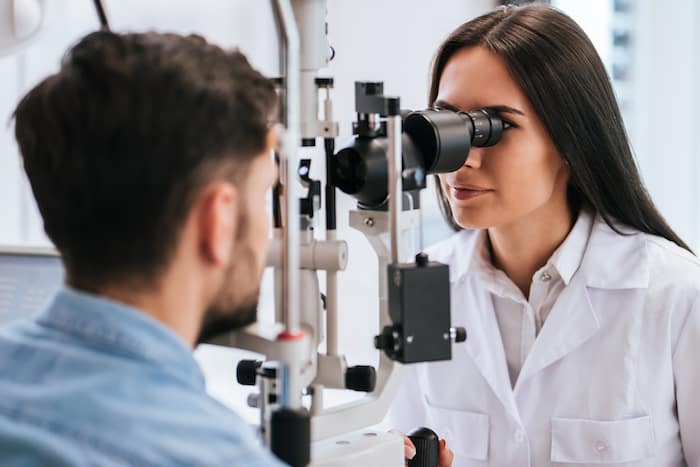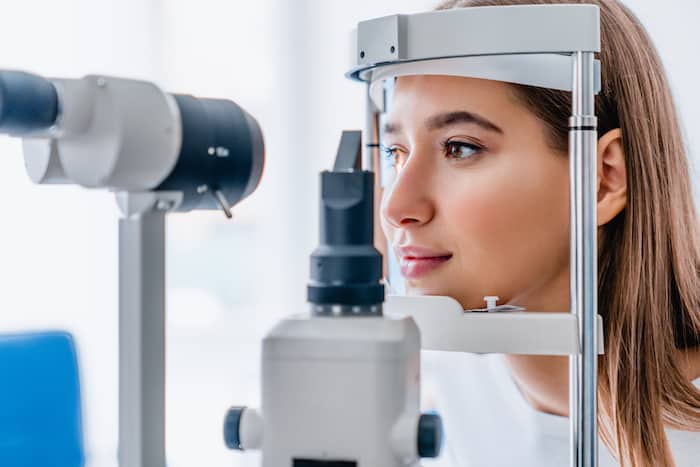
For adults and children alike, eye examinations are an essential part of an individual’s general health assessment and maintenance. You should have your eyes regularly checked to ensure that you can see as best as possible. Regular health exams for the eye will also check for any sign of disease or condition that won’t only affect your vision but also your overall health. It’s also essential to note that vision and eye health plays a critical role in the learning and development of a person; therefore, eye exams are highly recommended for children and even infants.
If you’re from Naples, Florida, you should visit site of eye specialists in your area and schedule your annual eye exams. The importance of yearly eye examinations goes well beyond only making sure that your vision isn’t blurry. Below are five other reasons why you should get one done to safeguard health and wellness.
- Early Detection Of Eye Diseases
Since many diseases that threaten your vision like diabetic retinopathy, macular degeneration, and glaucoma don’t have or only have minimal symptoms until they progress, eye exams are critical. Early detection and treatment are crucial in these cases to halt or slow down the progression of these diseases and save your eyesight. A comprehensive eye exam will look for the initial signs of these eye diseases. If eye pain, eye swelling, dry eyes, eye allergies, red eyes, and other problems with your eyes arise, it would be best to consult an eye doctor as they’re trained specifically for treating these diseases.
- Helps Prevent Developmental Delays In Children
If a child experiences trouble in school or developmental delays, a vision problem could be the underlying cause. Reading, motor development, proper learning, and many other skills depend not just on good vision but also on the functioning together of the eyes. Children having problems with hand-eye coordination or focusing may exhibit behavioral issues and will often experience frustration too. The problem is that children often don’t have the idea that the vision they’re experiencing is already abnormal, so parents and other people around them won’t know that they need help.
It’s easier to treat many eye conditions when they’re caught early, especially when the eyes are still developing. That said, an eye exam is vital to diagnose any issues in health and vision as soon as possible.

- Myopia Has Started To Become An Epidemic
Nearsightedness or myopia has become a common occurrence in a fast-growing number of children. And the worse thing is that these kids start to get nearsighted at a very young age.
Why should this be a big concern?
Kids who have become nearsighted early in life tend to suffer from a progression and worsening of nearsightedness that actually continues throughout childhood. Of course, this increases the risk of developing severe conditions that can potentially threaten and damage their eyes later in life. Such conditions include retinal detachment, glaucoma, and cataracts.
The best way of assessing a child’s risk of myopia is to schedule annual eye exams. Control measures to slow down myopia’s progression and reduce the child’s risk of developing other serious eye problems later in life can be implemented as long as it gets detected early on.
- Vision Screenings And Eye Exams Aren’t The Same
Many parents in Naples mistakenly believe that their child sees perfectly well because he/she has passed a vision screening at school. This also holds for adults who mistakenly think that they see perfectly fine because they passed a vision screening that was conducted at the motor vehicle department. More often than not, neither of those assumptions are actually correct.
Vision screenings only screen out those individuals who suffer from serious, usually quite obvious vision problems. In other words, screening identifies apparent problems that an individual might have through special visual tasks like recognizing road signs from behind the wheel and seeing a classroom chalkboard clearly.
Vision screenings don’t work like eye exams. The truth is that only eye examinations can ensure that your vision is as comfortable and as clear as possible. Unlike vision screenings, eye exams are also conducted by an ophthalmologist or optometrist using advanced technology. Eye examinations also ensure that an individual is free from eye diseases that are potentially serious, those that don’t have any obvious early symptoms like glaucoma and eye cancer.
- Detects Age-Related Eye Conditions
Like your body, your eyes can start to weaken as you age. Age-related macular degeneration, cataracts, and presbyopia are only some of the common age-related eye conditions that people suffer from. As you age, these conditions can begin to affect not only your vision but your daily life, too. While it’s true that some of these age-related eye conditions will bring more of an inconvenience, it’s worthy to note that others actually lead to dependency and vision loss.
Final Thoughts
Despite thinking that your vision is in perfect condition, yearly eye examinations can still be one of the ideal things you can do in protecting your and your loved ones’ overall health and wellness. Don’t put the idea off any longer; schedule an appointment immediately with an eye doctor in Naples for your eye exam.
The Editorial Team at Healthcare Business Today is made up of skilled healthcare writers and experts, led by our managing editor, Daniel Casciato, who has over 25 years of experience in healthcare writing. Since 1998, we have produced compelling and informative content for numerous publications, establishing ourselves as a trusted resource for health and wellness information. We offer readers access to fresh health, medicine, science, and technology developments and the latest in patient news, emphasizing how these developments affect our lives.







